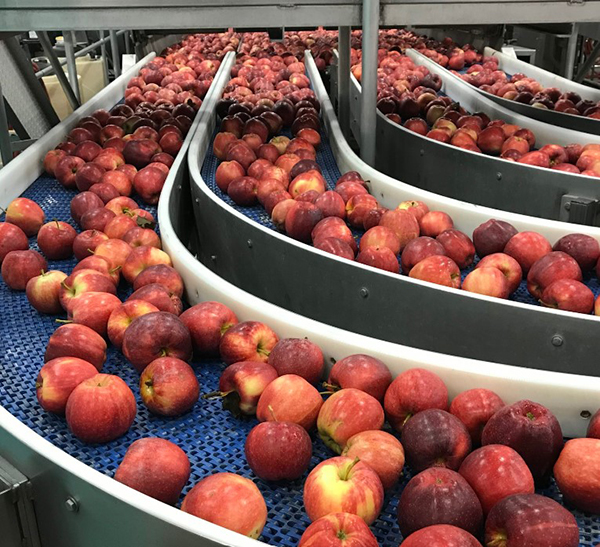PLASTIC MODULAR BELTS

PLASTIC MODULAR BELTS
Durable. Easy to repair. Positively driven. Plastic modular belting has become standard across industries for its efficiency-improving advantages, and Midwest Industrial Rubber provides plants with the top plastic modular belting brands from around the world. From quickly replacing modules to providing insights on the efficiency of a plastic modular belting application line, MIR can fulfill your plant’s plastic modular belting needs.
What is modular plastic?
Plastic modular belting is a type of conveyor belting consisting of injection-mold modules and hinge rods constructed in an interlaying brick pattern to form a belt. The belt is positively driven by sprockets engaged with the underside of the belt. The standard materials of the modules are polypropylene, polyethylene, acetal and nylon. Each material offers varying characteristics in hardness, temperature resistance, chemical resistance, strength, coefficient of friction and density for best conveying the material. Plastic modular belting is widely used in the Food Processing industry, Box, Carton & Paper industry and more for its benefits to efficiency and reliability in conveying systems.
Advantages of plastic modular belting
Plastic modular belting is prevalent in plants for its distinct advantages in food and non-food applications alike. The following characteristics of plastic modular belting can lead to reduced downtime, lowered maintenance costs and an overall improved bottom line.
Strong sanitation ability
The sanitary benefits for food processing plants include the non-porous thermoplastics, partially exposed hinge rods and FDA-compliant materials.
Easy maintenance and repair
In the case of a damaged module, a simple extraction of the adjacent plastic rods will fix the belt (no need to remove the entire belt from the conveying system). In addition, minimal tools are needed for extracting the plastic rods, meaning easy repair and lower maintenance costs.
Increased tracking ability
Plastic modular belting is propelled forward with positive drive (instead of friction drive) utilizing a series of sprockets. This eliminates slippage and leads to a strong tracking capability with the potential to reduce downtime for tracking repairs.
Minimized costs through low tension systems
Plastic modular belts are low tension systems, which allows for the use of fewer pulleys. This means a less complex system and reduced installation costs. The low-tension belts also cut down on wear to bearings and ancillary components, extending product life and lowering maintenance costs.
Simplified corner and turn navigation
When a conveying system calls for corners and turns, plastic modular belting easily rises to the challenge, as the belt can navigate around corners and turns using only one belt and one motor.
Reliable and durable material
Plastic modular belting undergoes no fraying or tearing. Also, the plastic modules can withstand harsh environments and offer high resistance to abrasives and corrosives.